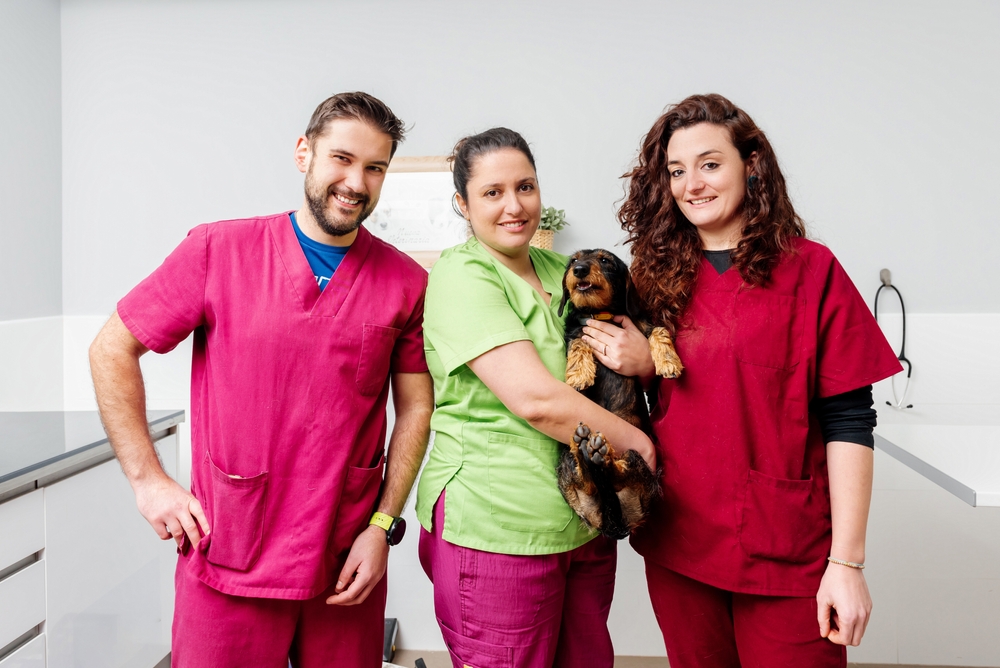Veterinary Practice Leaders: Creating Psychological Safety in Your Clinic
Scenario #1:
Jenny has only been at ABC Animal Hospital for three months, but she’s quickly gaining confidence in the exam room and feels comfortable around her colleagues. One night at the end of a hectic shift, Jenny miscalculates a drug order but doesn’t find her error until after the technicians have administered the medication to the pet. Jenny confirms that the pet is stable and immediately contacts her direct supervisor to discuss the error.
Scenario #2:
Samantha has been working at XYZ Pet Clinic for three months and still feels like an outsider. Her boss is closed off and doesn’t like to be bothered, so Samantha has to figure out a lot of things on her own. One night before close, Samantha administers the wrong medication to a pet. The next day when she’s confronted by her boss, Samantha panics and claims the technician incorrectly filled the medication.
In an ideal learning environment, new veterinary graduates aren’t afraid to fail or admit mistakes, ask questions, raise concerns, and simply be themselves. Unfortunately, such psychologically safe workplaces are rare, especially in potentially high-risk fields such as veterinary medicine.
A psychologically safe practice culture, where team members are comfortable sharing opinions, taking risks, and admitting mistakes, requires collaboration and intentional effort from practice leadership.
Veterinary practice leaders who put extra effort into creating an emotionally safe environment can achieve significant gains for both new graduates and established team members. We take a closer look at the definition of psychological safety and offer some tips on enhancing your practice’s emotional climate.
What is psychological safety in veterinary medicine?
Psychological safety is a belief shared among colleagues and team members that they will not be judged, ridiculed, or punished for speaking up or taking a perceived risk. For example, they can admit to an error, such as in scenario #1, raise concerns about a case, ask “stupid” questions, or—presuming no harm is possible—have a different personal or professional style, with no repercussions. Psychologically safe environments promote inclusion, openness, and honesty by ensuring that everyone has an equal opportunity to speak and act without criticism, censorship, or consequences.
How does psychological safety benefit veterinary professionals?
This may sound a little kumbaya, but psychological safety isn’t about everyone being nice to one another, no matter the cost, or about glossing over errors to protect someone’s feelings. Rather, psychological safety is about creating an ideal space for learning, performance, collaboration, and positive professional growth.
Psychologically safe veterinary teams enjoy many benefits, such as:
- More engaged, collaborative, and innovative teams — As seen in scenario #1, new veterinarians whose environment is psychologically safe feel supported as they learn and comfortable asking for help, and they are confident enough to contribute to the team, receive feedback, and take ownership and learn from mistakes. When Jenny contacted her boss, they likely reviewed the circumstances leading up to the mistake (e.g., Jenny was tired and had recently finished a difficult euthanasia) and discussed how to prevent similar errors in the future.
- Increased patient safety — Removing the stigma around failure ensures new veterinarians will be honest and forthcoming about their mistakes instead of hiding them or deferring the blame as Samantha did in Scenario #2. If practice ownership treats these situations as valuable learning opportunities, current and future patients are protected, and the new veterinarian will be motivated to keep moving forward and not be hindered by doubt and shame.
- Enhanced decision-making — Supported learners aren’t afraid to take risks and embrace challenges, which leads to more confident decisions and avoids analysis paralysis. This confidence propels new graduates to self-direct their learning and take ownership of their career development.
- Increased practice loyalty — New graduates are more likely to stay at a practice where they feel supported and safe, and their contributions are valued. In our example, Samantha probably didn’t feel much loyalty to XYZ Pet Clinic and may have already been searching for a new job.
- Stronger teams — Mutual support among associates and team members grows when they problem-solve together and share failures and victories. Because Jenny felt comfortable with her colleagues and team, she didn’t hesitate to address her mistake.
- Healthier wellbeing — New and early career veterinarians such as Samantha often feel isolated and may become discouraged by normal setbacks and failures on their learning journey. In a psychologically safe practice, such as ABC Animal Hospital, they are reassured, guided, and provided with a built-in structure for working through and learning from challenges.

Creating psychological safety in your veterinary practice
A psychologically safe work environment must be established from the top down by practice leaders who are fully committed and prepared to provide some team training and awareness. Practice owners and managers must lead by example in creating authenticity and safety. This requires:
- Showing humility — Show your team that it’s OK to be vulnerable, humble, and open. Share your mistakes and errors with your employees and tell new graduates about your early career struggles and failures. A leader doesn’t need to have all the answers. Rather, a leader teaches inquiring associates or team members to find solutions by encouraging brainstorming, recommending resources, or simply asking them about next steps.
- Redefining failure — In a psychologically safe space, redefining failures, mistakes, and problems is critical. This involves removing any stigma (i.e., shame, guilt, embarrassment) and creating growth opportunities. When team members seek your advice about their failures, allow them to talk through the situation, including what they could or should have done differently. Do not assign blame—be curious and ask, “What can we learn from this?” or “How will this change what we do in the future?” An emotionally safe workplace allows team members complete honesty and genuine reflection with no fear of punishment, which ultimately creates a more thoughtful and focused team.
- Encouraging open communication and active listening — Employees in psychologically safe work environments feel comfortable making recommendations and challenging the status quo, but this can only be achieved with positive communication. Show your team that you’re engaged and that you value their opinions. This involves:
- Your presence — Always be clearly present during conversations.
- Questions — Ask questions to enhance your understanding and to ensure you are hearing correctly.
- Action — Follow through with your action, when appropriate.
- Accessibility — Be accessible to your team by encouraging communication through multiple channels, including text and email.
- Soliciting and receiving feedback — When appropriate, ask your new associates for their input on practice decisions or cases, because you may benefit from their knowledge of new studies or techniques. Ask newly graduated veterinarians to teach you a new skill or to explain a new medication or product. Listen actively, and show gratitude, respect, and consideration for their feedback—including when you disagree.
Encourage team collaboration at practice-wide meetings with thought-provoking, open-ended questions. When possible, act on the team’s suggestions and ideas to demonstrate your understanding and appreciation. If the idea fails, review the outcome at a future meeting and turn the idea into a learning opportunity.
- Addressing negativity ASAP — No workplace, including a psychologically safe environment, can be conflict-free, and you should never prohibit disagreements or disputed actions among veterinary team members. Ensure all associates and team members know they can voice their opinion and that all viewpoints are considered valid, valuable, and worthy of consideration.
Psychological safety is an important concept in modern veterinary medicine, and a critical step toward more sustainable, satisfying careers. When new and early career veterinarians feel supported and comfortable in their first clinical roles, they also feel free to find or embrace their personal style, which builds confidence and independence. Then, they will experience the joy they expect from their veterinary career.
Ready for more insights on how to support your new associates? Follow Ready, Vet, Go Veterinary Mentorship on LinkedIn (@Ready-Vet-Go) or contact us to sign up for the Ready, Vet, Go test drive—a behind-the-scenes look at our six-month mentorship program designed exclusively for practice owners and managers.

